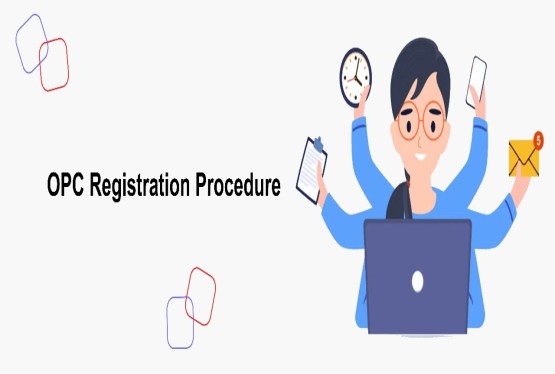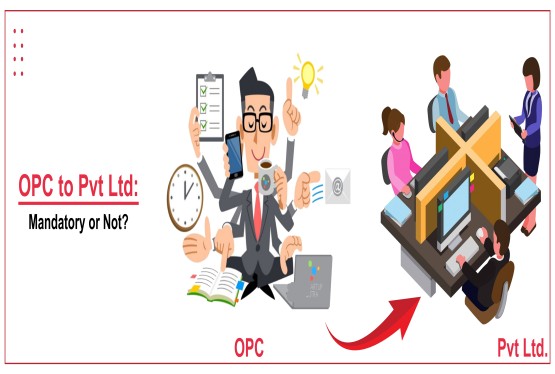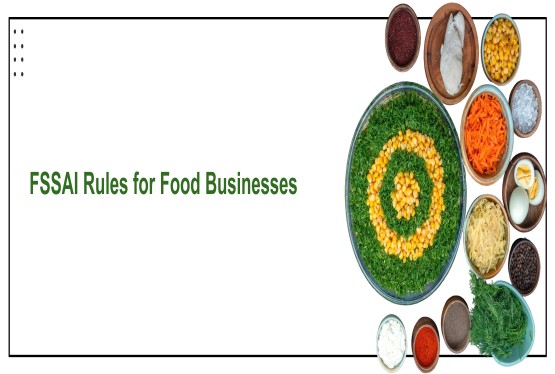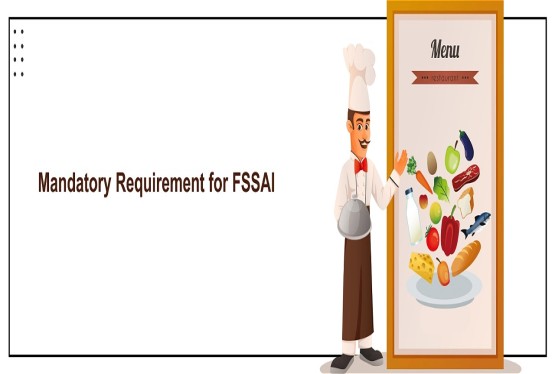Starting a food truck business in India is a smart and exciting choice for those who enjoy cooking and want to begin a food venture with low investment. Unlike traditional restaurants, food trucks offer mobility and the freedom to operate in crowded places like office areas, college campuses, or public events. You can offer street food, fusion dishes, or healthy meals whatever suits your audience. However, running a food truck involves more than just serving tasty food. You’ll need a solid business plan, the right structure, and licenses such as the FSSAI License (FSSAI State license or FSSAI Central License), Fire Safety NOC, Trade License, and more. Ensuring all permissions are in place keeps your operations smooth and legal. This guide will take you through all the essential steps to successfully launch and run a food truck business in India.
Business Planning and Finalizing Your Concept
Before investing money into purchasing a truck, kitchen equipment, or applying for licenses, the first and most important step is to create a strong foundation through proper planning. This includes developing your food concept, identifying your target audience, and choosing the best possible locations for your food truck operations. These early decisions will shape your entire business strategy and influence your success in the long run.
Food Menu and Cuisine
Deciding what kind of food you will serve is one of the biggest decisions you'll make. Your menu should be based on three things: your passion, local demand, and ease of preparation in a compact food truck kitchen.
Key Options to Consider:
-
Indian Street Food (Chaat, Kebabs, Pav Bhaji): Indian street food like chaat, kebabs, and pav bhaji is widely loved and always in demand. It uses affordable, easily available ingredients and is quick to prepare, making it ideal for food trucks operating in busy, high-footfall locations.
-
Continental Cuisine (Burgers, Wraps, Pasta): Continental cuisine such as burgers, wraps, and pasta is highly popular among urban youth and office-goers. These dishes offer good scope for creative presentation, premium pricing, and are easy to prepare, making them a great fit for food trucks in metro cities.
-
Fusion Cuisine (e.g., Butter Chicken Pizza, Tandoori Momos): Fusion cuisine like butter chicken pizza and tandoori momos combines global and Indian flavors, attracting adventurous eaters. It adds uniqueness to your menu and helps your food truck stand out from competitors.
-
Healthy or Vegan Meals (Salads, Detox Drinks, Vegan Wraps): Healthy or vegan meals such as salads, detox drinks, and vegan wraps appeal to fitness-conscious customers. They offer a modern, clean-eating option and are ideal for food trucks near gyms or corporate zones.
-
Dessert Trucks (Ice Cream, Waffles, Milkshakes, Donuts): Dessert trucks serving ice cream, waffles, milkshakes, and donuts attract crowds of all ages, especially during evenings and events. They offer high-profit margins and are perfect for festivals, night markets, and college fests.
Target Audience and Location
Your target audience and selecting the right spot to park your food truck is important to running a successful business. Your location impacts not only footfall but also the type of food you should offer and how much you can charge.
Audience Identification:
-
Corporate Zones (IT parks, business hubs): Corporate zones like IT parks and business hubs are ideal for food trucks during lunch and snack hours. Professionals seek quick, hygienic meals, making these areas perfect for offering combo meals and healthy options.
-
College Campuses and Universities: College campuses and universities are great spots for food trucks, attracting students who prefer affordable, tasty, and trendy food. Offering fusion dishes, snacks, and beverages here can ensure high footfall and daily sales.
-
Public Parks and Tourist Spots: Public parks and tourist spots attract families and travellers, especially on weekends and holidays. Food trucks offering light snacks, beverages, and local delicacies can do well here with the right permissions and timing.
-
Night Markets and Food Streets: Night markets and food streets are bustling with evening crowds looking for quick, flavorful meals. Food trucks serving fast food, grilled items, and beverages thrive here due to high footfall and vibrant atmosphere.
-
Events, Carnivals, and Exhibitions: Events, carnivals, and exhibitions offer temporary but high-traffic opportunities for food trucks. These venues attract diverse crowds, making them ideal for showcasing signature dishes, boosting brand visibility, and earning quick, high-volume sales.
By carefully planning your menu and selecting the right locations based on your target audience, you create a strong foundation for your food truck business. These decisions will not only help in attracting customers but also streamline your operations and regulatory approvals in the next stages of setup.
Choose the Right Business Structure
Choosing the right business structure is an important step that affects how your food truck business will operate legally and financially. It determines ownership control, liability, taxation, and future scalability. Each structure has its own benefits, and selecting the one that aligns with your goals will make your business journey smoother.
Common Business Structure Options:
-
Sole Proprietorship: Ideal for individual owners starting small. It involves simple registration, low setup cost, and minimal paperwork but comes with unlimited personal liability.
-
Partnership Firm: Suitable for two or more people wanting to share responsibilities and investments. It’s easy to form and operate but offers limited liability protection.
-
Limited Liability Partnership (LLP): Great for professionals or partners who want a legal identity and limited liability without heavy compliance. It combines partnership flexibility with company benefits.
-
Private Limited Company (Pvt Ltd): Best for startups aiming to scale or attract investors. It provides limited liability, high credibility, and easier access to funding.
-
One Person Company (OPC): Designed for solo entrepreneurs wanting corporate benefits. It ensures better governance and can later be converted into a Pvt Ltd company.
Pro Tip: If you’re planning to grow your food truck business or raise funds in the future, registering as an LLP or Private Limited Company is the most suitable and scalable option.
Food Truck and Customization Requirements
Your food truck is more than just a vehicle it's your mobile kitchen and the heart of your business. Choosing the right vehicle and customizing it properly is essential to ensure safety, efficiency, and compliance with legal standards.
Vehicle Selection
Start by selecting a vehicle that’s both fuel-efficient and spacious enough to accommodate kitchen equipment and staff movement. Ideally, the truck should be between 9 to 14 feet in length.
Popular models in India suitable for food truck conversion include the Tata Ace, Force Traveller, Mahindra Supro, and Maruti Eeco Cargo. These vehicles are widely preferred due to their compact size, fuel efficiency, and adequate interior space, making them ideal for setting up a fully functional mobile kitchen.
Interior Customization
Once you’ve selected the vehicle, it must be professionally converted into a food-grade kitchen. Work with experienced vehicle fabricators to install:
-
Stainless steel counters and storage racks
-
Chimneys and exhaust systems for ventilation
-
2–3 LPG burners with a safe cylinder cage
-
Freezer or refrigerator unit for perishables
-
Clean water tank with a basic filtration system
-
Anti-slip flooring and fire-resistant wiring for safety
RTO Compliance
After customization, you must re-register your vehicle as a food truck under commercial use and obtain a valid Fitness Certificate from the Regional Transport Office (RTO). This is mandatory to legally operate your food truck on public roads.
Proper setup not only ensures smooth operations but also helps in passing inspections for fire safety and FSSAI licensing.
Licenses and Permits Required
To operate a food truck business legally in India, you must obtain several registrations and approvals. Without these, your food truck may face penalties, fines, or even shutdown by local authorities. Below is a detailed explanation of the essential licenses and permits required:
FSSAI License (Food Safety License)
The Food Safety and Standards Authority of India (FSSAI) license ensures that the food you serve is hygienic and safe for consumption. Depending on your turnover and operational scale, there are three types:
-
FSSAI Registration: For turnover below Rs.12 lakh
-
FSSAI State License: For turnover between Rs.12 lakh and Rs.20 crore (commonly applicable to food trucks)
-
FSSAI Central License: For businesses operating in multiple states or with turnover exceeding Rs.20 crore
Documents Required include identity and address proof, vehicle RC or chassis details, kitchen layout, water source analysis report, Form IX (nominee details), and NOC from the local municipality. Apply at: https://foscos.fssai.gov.in
Trade License (from Municipal Corporation)
A Trade License authorizes you to carry out commercial activity within a locality. Issued by the local Municipal Corporation or Gram Panchayat, it is mandatory before you start operations. If you're setting up in a rented or private space, you must attach a lease deed or NOC from the landowner. This license is generally valid for one year and needs to be renewed annually.
Fire Safety NOC
Since food trucks use LPG cylinders, open flames, and other heat-generating appliances, obtaining a Fire Safety NOC from the State Fire Department is a mandatory requirement. This clearance ensures your food truck meets all necessary safety standards and is well-prepared to handle fire-related emergencies. To obtain this NOC, your food truck must be equipped with essential safety features such as ABC or CO2 type fire extinguishers, an emergency shut-off valve for the gas supply, a proper smoke exhaust system, and heat-resistant flooring and wall tiles. These measures not only protect your staff and customers but also help in passing municipal and health inspections, ensuring smooth and compliant operations.
Environmental Clearance License
An Environmental Clearance or NOC from the State Pollution Control Board is required for food trucks to ensure proper disposal of waste, control of emissions, and compliance with pollution norms. It includes approvals for wastewater management, LPG usage, and noise control. This clearance is especially important in metro cities and must be obtained before starting operations.
Pollution Control Board NOC
A No Objection Certificate (NOC) from the State Pollution Control Board is essential for food trucks, particularly in metropolitan cities where environmental regulations are strictly enforced. This certificate confirms that your food truck operations comply with environmental standards related to wastewater discharge, solid waste disposal, and the control of air and noise pollution generated during cooking and service. Obtaining this NOC is important to ensure that your business does not negatively impact the local environment. Cities such as Delhi NCR, Mumbai, and Bangalore place a strong emphasis on these norms, making it vital for food truck operators to secure this clearance before starting operations.
Vehicle Fitness Certificate & Commercial Registration
As per the Motor Vehicles Act, 1988, a food truck must be registered as a commercial vehicle to operate legally on public roads. This involves obtaining a Fitness Certificate from the Regional Transport Office (RTO), which confirms that your vehicle is roadworthy and meets all commercial operation standards. In addition to the fitness certificate, you are also required to have third-party and complete vehicle insurance, undergo an annual vehicle fitness and pollution check, and ensure your truck has a valid commercial license plate. Without fulfilling these requirements, your food truck cannot be recognized as a legal mobile food business.
GST Registration
If your food truck’s annual turnover exceeds Rs.40 lakh (or Rs.20 lakh in special category states), obtaining a GST registration becomes mandatory. This registration enables your business to operate within the formal tax system and offers several benefits. With GST registration, you can issue proper tax invoices, claim input tax credits on purchases like raw materials, packaging, and kitchen services, and partner with online food delivery platforms such as Zomato and Swiggy, which require GST details for onboarding. It also enhances your business credibility and compliance. You can apply for GST registration online through the official portal: https://www.gst.gov.in.
Shop & Establishment License
The Shop and Establishment License is issued by the Labour Department of your respective state and is required even if your business operates from a mobile setup like a food truck. This license ensures compliance with labor laws and regulates key aspects such as employee working hours, weekly holidays, leave policies, and basic staff welfare provisions. It also mandates the maintenance of wage and attendance records, ensuring fair employment practices. Even if you employ a small team, this license is essential for running your business legally, paying salaries, and opening a current bank account in your business name.
ISO Certification (Optional but Recommended)
Although not compulsory, ISO 22000:2018 certification helps improve food safety practices and builds customer trust. It sets you apart from competitors and is useful when partnering with malls, event organizers, or corporates. ISO certification boosts your brand’s image and reflects a commitment to quality and hygiene.
Brand Identity and Trademark Protection
In the competitive food truck industry, having a unique and memorable brand is just as important as serving great food. Your truck’s name, logo, color scheme, and overall design create a visual identity that helps customers recognize and remember your business. Building a strong brand not only attracts loyal customers but also opens doors to future opportunities like franchising and investor funding.
Trademark Your Business Name & Logo
To protect your brand legally, it’s important to register your business name and logo as a trademark. In India, food truck businesses fall under Trademark Class 43, which covers food and beverage services.
Documents Required for Trademark Registration:
-
A clear image of your logo or brand design
-
Identity proof of the applicant (such as Aadhaar, PAN, or passport)
-
Business registration proof, like a Certificate of Incorporation or GST registration
-
Power of Attorney (Form TM-48) authorizing your agent or attorney to file the application
You can file your trademark application online through the official portal: https://ipindia.gov.in
Key Benefits of Trademark Registration:
-
Prevents Brand Copying: Once registered, no one else can legally use your brand name or logo in the same business category, protecting your identity.
-
Adds Value to Expansion: If you plan to scale your business or create a franchise, having a registered trademark increases brand value and credibility.
-
Investor Confidence: Investors and business partners often look for trademark ownership before entering any business arrangement, as it signifies legal control over branding.
Trademark Registration is a smart investment in your food truck’s long-term growth, ensuring that your brand remains distinct, protected, and legally yours.
Hiring Staff and Operational Setup
Running a food truck smoothly requires more than just good food it needs a small but skilled team and the right set of equipment to ensure fast service, hygiene, and customer satisfaction. Even though the space is limited, your operations must be well-organized for efficient day-to-day functioning.
Typical Staff Required
A food truck typically operates with a 3–4 member team, enough to handle cooking, serving, and customer interaction during peak hours. The ideal team includes:
-
1–2 Chefs: Responsible for preparing the dishes quickly and maintaining kitchen hygiene. Depending on your menu, they should be skilled in grilling, frying, or assembling fast-moving meals.
-
1 Assistant or Helper: Supports the chef with prep work, cleaning, and managing supplies. Their role is crucial in maintaining speed and cleanliness.
-
1 Person for Billing and Customer Service: Handles order taking, payments (cash or digital), and customer queries. A polite, energetic person here enhances the overall customer experience.
Hiring trained and hygienic staff also helps in meeting FSSAI food safety standards, which is important during inspections.
Must-Have Equipment for Operations
To run your food truck efficiently, certain tools and supplies are essential:
-
POS Machine or Mobile Billing App: Allows for digital payments, printed receipts, and sales tracking. Apps like Petpooja, Zoop, or Square POS can be integrated.
-
Disposable Cutlery and Packaging: Stock up on eco-friendly or disposable plates, boxes, spoons, straws, and napkins to ensure hygiene and ease of takeaway.
-
Cleaning Tools and First Aid Kit: Daily cleaning supplies like mops, sanitizers, gloves, and cloths are necessary for hygiene. A basic first aid box is also mandatory for safety compliance.
-
GPS Tracker: A GPS device installed in the vehicle ensures location tracking for route optimization and security. It can also help customers find your truck through your website or app.
In short, a well-trained team and well-equipped setup are key to delivering consistent quality, maintaining hygiene, and offering a pleasant customer experience essentials for building a loyal customer base and growing your food truck business.
Parking and Operational Permissions
Unlike restaurants that operate from fixed locations, food trucks are mobile and require special permissions to park and operate in public or private areas. Since India does not yet have a centralized national policy for food trucks, each city or municipality follows its own local rules and guidelines. Therefore, obtaining the correct permissions from relevant local authorities is important before starting daily operations.
Sources for Parking Permission:
-
Local Municipality or Urban Local Body (ULB): If you plan to operate in a public area like a market, park, or street corner, you must get permission from the municipal corporation. They may assign designated vending zones and time slots for food trucks.
-
Event Organizers: For temporary setups at private events like food festivals, concerts, fairs, weddings, or exhibitions, you need written permission from the event organizer. They usually charge a vendor fee or commission for participation.
-
Malls or Office Parks: Many malls and commercial complexes offer food truck parking spaces to provide more variety to their visitors or employees. In such cases, permission must be obtained from the property management or facility team, along with a parking rental agreement.
-
Resident Welfare Associations (RWAs): For operating in residential areas, permission from the local RWA is required. RWAs may allow weekend setups in parking lots or parks but often limit hours and noise levels.
Areas to Avoid:
-
Hospitals and Schools: Due to noise and crowd restrictions, parking near hospitals, schools, or government buildings is generally prohibited.
-
No-Vending Zones: Many cities define “no-vending zones” under their street vending policies. Avoid these locations to prevent fines or vehicle seizure.
Rental Charges and Agreements
When operating in private spaces like malls, office parks, or event venues:
-
Be prepared to pay daily, weekly, or monthly rent for the parking spot.
-
You may also need to sign a temporary agreement or MoU with the landowner or event host.
-
Ensure that your parking setup does not block traffic, entrances, or create litter otherwise, your permission can be revoked.
Promotion and Customer Acquisition
No matter how good your food is, your food truck business can’t thrive without customers. In today’s highly competitive and digital-first market, promoting your brand effectively is just as important as preparing quality meals. The goal is to make your food truck visible, engaging, and memorable, both online and offline.
Online Promotion
Social media platforms have become essential tools for food truck marketing. They help you reach a wider audience at minimal cost.
-
Instagram Reels and Stories: Share behind-the-scenes content, daily specials, customer reactions, and cooking clips. Visually engaging content can go viral and bring in curious customers.
-
Influencer Collaborations: Partner with local food bloggers or influencers to review your dishes and share their experience online. Their followers are likely to try out your food.
-
Google My Business: Register your food truck on Google so customers can easily find your location, read reviews, and get directions. Encourage happy customers to leave 5-star ratings and reviews.
Online Delivery Platforms
Registering your food truck with food delivery apps can increase your reach, especially among people who prefer doorstep service.
-
Swiggy and Zomato: These platforms allow users to order directly from your food truck, provided you have an FSSAI license and GST registration.
-
Dunzo or Hyperlocal Apps: In some cities, Dunzo or other local delivery networks may support food delivery from trucks during limited hours.
Listing on these platforms also boosts your digital presence and customer trust.
Offline Promotion Strategies
Even with strong digital marketing, on-ground visibility remains important, especially when you're starting out.
-
Flyers and Discount Offers: Distribute well-designed flyers in nearby offices, hostels, and residential complexes. Offer opening discounts or "Buy 1 Get 1 Free" promotions to attract first-time customers.
-
Loyalty Card System: Encourage repeat business by offering rewards like a free meal on every 5th or 10th visit. This builds a loyal customer base.
-
Participate in Events: Join college festivals, flea markets, corporate gatherings, or night bazaars. These events offer a great opportunity to introduce your brand to new crowds and gain exposure.
Business Insurance & Risk Management
Operating a food truck involves several risks from kitchen fires and accidents to customer complaints and equipment damage. While safety measures reduce the chances of incidents, having the right insurance coverage ensures financial protection if things go wrong. Insurance not only safeguards your business but also builds trust with customers, employees, and event partners.
Recommended Insurances for Food Trucks
-
Commercial Vehicle Insurance: Since your food truck is a commercial vehicle, it is mandatory to have at least third-party vehicle insurance under the Motor Vehicles Act. However, it's advisable to opt for complete commercial insurance, which covers damage from accidents, natural disasters, and theft.
-
General Liability Insurance: This protects your business against legal claims arising from customer injury or illness due to your food. For example, if a customer suffers from food poisoning or slips near your truck, this policy helps cover medical and legal expenses.
-
Fire and Kitchen Equipment Insurance: Your food truck carries expensive kitchen equipment; burners, refrigerators, gas cylinders, and more. Fire and equipment insurance covers loss or damage due to fire, short circuits, or mechanical breakdown, helping you recover without major financial setbacks.
-
Workmen Compensation Insurance: If you employ staff, this insurance is important. It covers medical expenses, disability benefits, or compensation if your employee is injured while working in the truck. It's also required under labour laws in many states.
Final Words
Launching a food truck business in India is a unique opportunity to combine your love for food with the freedom of running a mobile venture. With lower investment and higher flexibility compared to traditional restaurants, food trucks are ideal for today’s fast-paced, urban lifestyle. However, success in this field goes beyond delicious recipes it requires proper planning, compliance with legal norms, the right team, and smart marketing. From obtaining essential licenses to choosing the best locations and promoting your brand online, every step plays an important role. Consistency in quality, hygiene, and customer service will help you build trust and stand out in a competitive market. With dedication and the right approach, your food truck can become a local favourite and a profitable, scalable business.
Frequently Asked Questions (FAQs)
Q1. Is any license required to start a food truck business in India?
Ans. Yes, key licenses include the FSSAI food license, Trade License, Fire Safety NOC, Pollution NOC, GST registration, and a Shop & Establishment License.
Q2. How much does it cost to start a food truck in India?
Ans. The average startup cost ranges between Rs.8 to Rs.15 lakhs, including vehicle purchase, customization, licenses, kitchen equipment, and working capital.
Q3. Can I park my food truck anywhere in the city?
Ans. No, you must get permission from local authorities, mall management, or event organizers. Avoid parking near schools, hospitals, or no-vending zones.
Q4. What is the best business structure for a food truck?
Ans. An LLP or Private Limited Company is ideal for liability protection and future scalability. Sole proprietorship can work for small setups.
Q5. Is FSSAI registration mandatory for food trucks?
Ans. Yes, FSSAI registration is compulsory. It certifies that the food served is hygienic and safe for public consumption.
Q6. Do I need GST registration for a food truck?
Ans. GST registration is required if your annual turnover exceeds Rs.40 lakh (or Rs.20 lakh in special category states) or if you want to sell via apps like Zomato.
Q7. Can I operate a food truck without a commercial vehicle permit?
Ans. No, your vehicle must be registered as a commercial vehicle with a valid fitness certificate and insurance from the RTO.
Q8. What type of food sells best from a food truck in India?
Ans. Popular options include Indian street food, fusion dishes, continental snacks, healthy meals, and desserts like waffles and milkshakes.
Q9. How can I promote my food truck business?
Ans. Use social media platforms like Instagram, Google My Business, food delivery apps, distribute flyers, and participate in local events and fests.
Q10. Is insurance necessary for a food truck?
Ans. Yes, insurance such as commercial vehicle insurance, fire and equipment insurance, liability coverage, and employee insurance is highly recommended.












_crop10_thumb.jpg)





_crop10_thumb.jpg)




























-Form_crop10_thumb.jpg)

_crop10_thumb.jpg)























_learn_crop10_thumb.jpeg)
































_crop10_thumb.jpg)

_crop10_thumb.jpg)





















_crop10_thumb.jpg)















_for_Foreign_Directors_learn_crop10_thumb.jpeg)




_Act,_2015_learn_crop10_thumb.jpg)



































_learn_crop10_thumb.jpg)








































